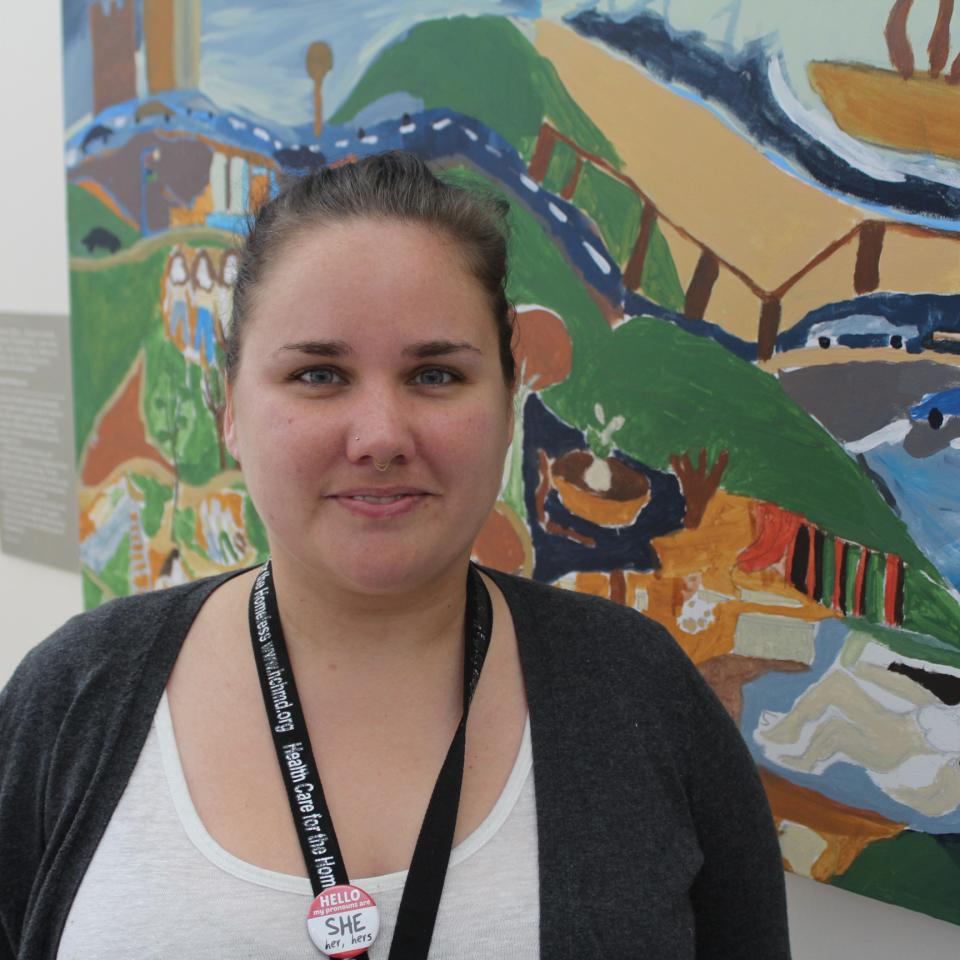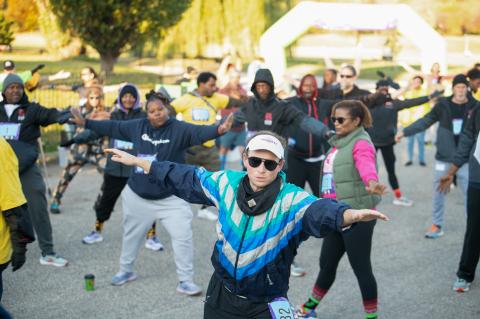
The meaning of home
Therapist case manager Sarah Pain Wagner sits down to talk housing and families.
Q: In early 2017, Baltimore City released a new round of housing vouchers, including 55 for Health Care for the Homeless to manage—10 of them designated for families. What does having a home mean for the families you see?
Sarah: I’m working with one recently-housed family now—Sandra* and her three-year-old daughter. For Sandra, housing means autonomy. After 2 ½ years of doubling up with family and staying in shelters, she wanted space—like any parent deserves—to make decisions for her family based on what they need rather than what works for the people around them.
Q: How are barriers different for families experiencing homelessness than for single adults?
Sarah: Child care is the biggest issue. Sandra doesn’t have family support or anyone to watch her kid other than herself. She is scrambling to get her daughter into a headstart program after the year has already started so that she can look for jobs. She feels like she’s already asked a lot of the people around her.
Q: What does housing mean for Sandra’s daughter?
Sarah: Her daughter is really sweet and happy go lucky. Every time I see her she’s always reading or coloring. I just dropped off a whole Frozen-themed bedroom for her. She was really excited to show me her new room and point out her hello kitty things! Sandra says this is the first time her daughter has ever had her own bedroom.
Q: Now that this family has a home, what’s next?
Sarah: Sandra is really independent and capable but she’s been trying to survive for so long that she hasn’t been able to invest in herself. It’s a lot being homeless. It’s a lot to be a single mom. I’m helping her to get settled right now. To put some plans in place for her future—she wants to go back to school and be a nurse’s aide. And, together, we’ll focus on what wellness looks like for her and her daughter.
*Sandra is an alias.
More Recent News
At our annual staff holiday party, we take time to recognize and celebrate staff members who best represent our Core Values, as well as one recipient of the Von Bradshaw Award, named after Delvonia "Von" Bradshaw, who passed away in 2024 and truly held the principles of Health Care for the Homeless to heart. Please congratulate your colleagues when you see them!
Those of us in the Health Care for the Homeless community share a belief in something powerful: that everyone should have a place to call home.
Hope for that vision isn’t passive. It’s something that clients, staff and community supporters make possible together.
With SNAP benefits in Maryland facing uncertainty, many families are wondering how they’ll put food on the table. Here are ways Health Care for the Homeless is helping, as well as a list of local food assistance resources.
On Saturday, November 1, more than 300 runners, walkers, friends and volunteers gathered in Patterson Park for the 2025 Rock Your Socks 5K. Read all about this year's awesome event!




